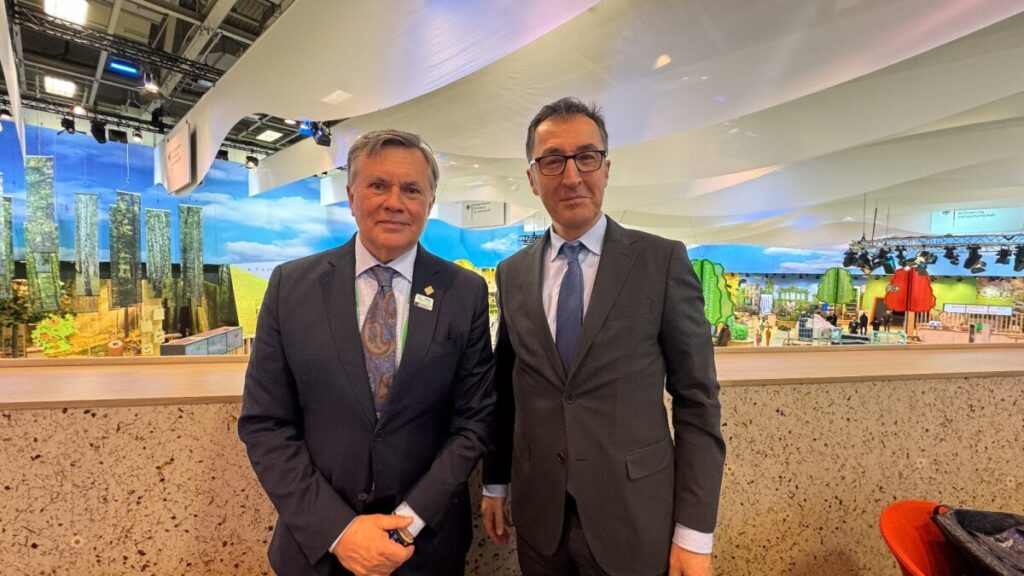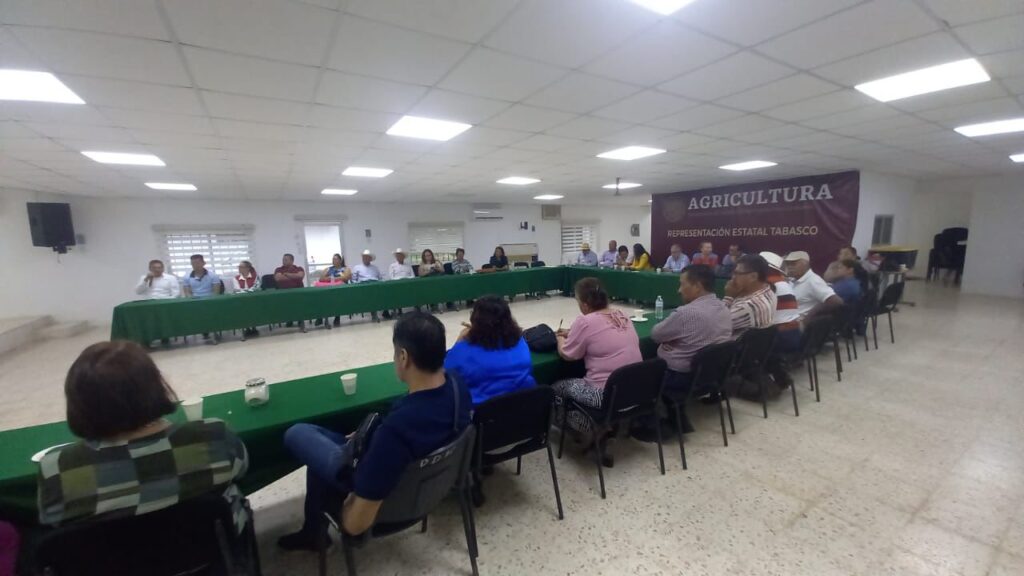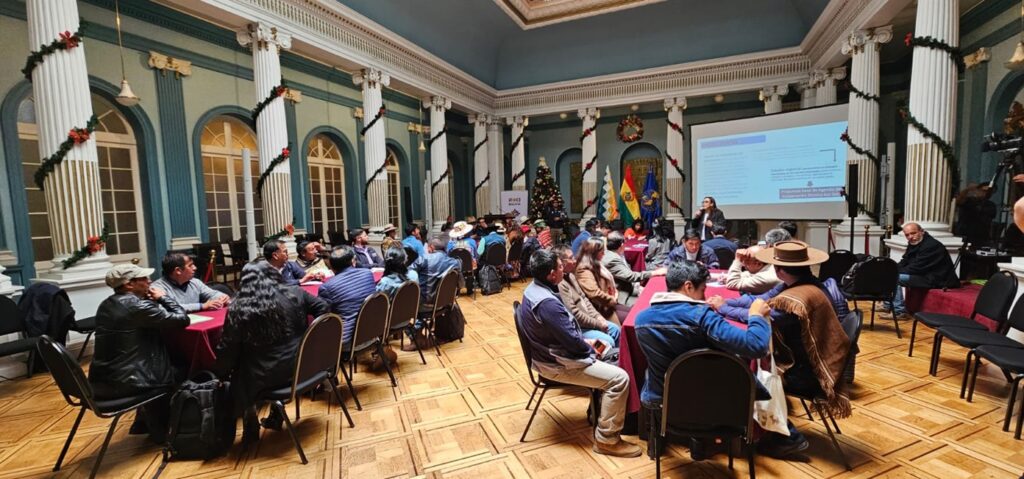Méndez, quien pertenece al pueblo originario Lenca, se crió en una familia de 13 hermanos, que vivía del cultivo de granos básicos y de hortalizas. Desde muy joven advirtió que los agricultores familiares sólo podrían aspirar a mejorar su calidad de vida a través de la unión, la cooperación mutua, la capacitación y la búsqueda de vías directas de comercialización.

Tegucigalpa, 27 de septiembre de 2022 (IICA) – La agricultora hondureña Eodora Méndez, quien trabaja para que los habitantes de zonas rurales se organicen para ser más eficientes tanto en la producción como en la comercialización de los alimentos, fue reconocida como una de las “Líderes de la Ruralidad” de las Américas por el Instituto Interamericano de Cooperación para la Agricultura (IICA).
En reconocimiento, Méndez recibirá el premio “Alma de la Ruralidad”, que es parte de una iniciativa del organismo especializado en desarrollo agropecuario y rural para reconocer a hombres y mujeres que dejan huella y hacen la diferencia en el campo del continente americano, clave para la seguridad alimentaria y nutricional y la sostenibilidad ambiental del planeta.
Méndez, quien pertenece al pueblo originario Lenca, se crió en una familia de 13 hermanos, que vivía del cultivo de granos básicos y de hortalizas. Desde muy joven advirtió que los agricultores familiares sólo podrían aspirar a mejorar su calidad de vida a través de la unión, la cooperación mutua, la capacitación y la búsqueda de vías directas de comercialización.
Así, se capacitó en prácticas agrícolas y en temas como acceso al financiamiento, y se convirtió en la primera mujer presidenta de la Empresa Campesina Agroindustrial de la Reforma Agraria de Intibucá (ECARAI). Se trata de una organización que reúne pequeños productores de distintas comunidades del departamento hondureño de Intibucá. Gracias a ella, 325 pequeños campesinos han mejorado sus ingresos por la producción y comercialización de granos y hortalizas.
El Premio Líderes de la Ruralidad es un reconocimiento para quienes cumplen un doble papel irremplazable: ser garantes de la seguridad alimentaria y nutricional y al mismo tiempo guardianes de la biodiversidad del planeta a través de la producción en cualquier circunstancia. El reconocimiento, además, tiene la función de destacar la capacidad de impulsar ejemplos positivos para las zonas rurales de la región.
La mujer que apostó a la unión de los agricultores
Criada en una comunidad rural del departamento de Intibucá, en Honduras, Eodora Méndez entendió desde muy joven que los agricultores familiares deben unirse y organizarse para tener mejores posibilidades de salir adelante.
“Éramos una familia de 13 hermanos y nuestros padres sembraban papa, maíz, frijoles y hortalizas. Yo veía que nuestras cosas eran difíciles y entonces les decía que era necesario juntarse con otros agricultores para hacer ventas en conjunto y sin intermediarios, en los mercados de Tegucigalpa o San Pedro Sula, las ciudades más grandes del país, para obtener mejores precios”, recuerda.
A partir de ese convencimiento, Eodora se dedicó con pasión a la vida cooperativa, con la ambición de mejorar la calidad de su comunidad. Para ello se capacitó, no solo en cuestiones estrictamente agrícolas, sino también temas como el acceso al financiamiento y la contabilidad.
Así, llegó a la presidencia de la Empresa Campesina Agroindustrial de la Reforma Agraria de Intibucá (ECARAI), una organización campesina con visión empresarial que representa a comunidades de la zona alta del departamento de Intibucá, Honduras. Gracias a ella, 325 pequeños campesinos se dedican con éxito, y en conjunto, al cultivo y la comercialización de granos y hortalizas.

ECARAI agrupa a 13 cooperativas de base cuyos miembros cultivan un promedio 1,2 hectáreas de hortalizas de alto valor, especialmente papa. La empresa es dirigida por pequeños productores del pueblo indígena lenca, quienes han evolucionado de una agricultura de subsistencia a un sistema de producción y negocios de escala.
“La empresa fue fundada en 1994, pero hasta 2005 casi no pudo avanzar, porque la gente no tenía el conocimiento necesario para mejorar la producción y la comercialización. Entonces nos dimos cuenta de que había que tener una mentalidad diferente, que pusiera en primer plano la capacitación y la organización”, cuenta Eodora.
“La organización –agrega- es muy importante, porque cuando un agricultor anda solo las cosas son difíciles. Por ejemplo, es complicado tener continuidad en la producción para acceder a los mercados. Cuando hay más actores juntos, todo sale mejor. Es más fácil armar planes de siembra para asegurar la producción que los mercados necesitan. Todo se basa en hacer una buena planificación”.
Orgullo indígena
Con raíces indígenas, ya que pertenece al pueblo Lenca, que habita en parte de Honduras y El Salvador, Eodora ha sido siempre una enamorada de la agricultura. Tenía apenas 15 años cuando le pidió a su padre que separara una pequeña parcela para ella, que quería tener sus cultivos, de manera de generar sus propios ingresos y no depender de nadie. “Mi padre, que ya falleció, me dejó muy buenas enseñanzas para cuidar la tierra de la mejor manera y para prepararme para ser una buena agricultura”, dice con orgullo.
Luego formó parte de un grupo de jóvenes que confeccionaban tejidos artesanales, antes de volver a la agricultura. Ya casada, junto con su marido tuvieron cuatro hijos y se dedicaron al cultivo de hortalizas y de granos básicos, alimentos que sostienen cotidianamente las mesas de los hondureños y las hondureñas.
Pero ella sentía que necesitaba más y por eso se capacitó y salió a participar en las organizaciones comunitarias, con la ilusión de contribuir al bienestar de su gente. Para ello, tuvo que enfrentar los prejuicios sociales sobre el rol de la mujer.
“Yo preferí no escuchar –afirma- lo que decía mucha gente. Y tuve la suerte de que mi esposo reconoció que los hombres a veces son machistas y no quieren que las mujeres salgan de la casa. Él entendió que yo quería trabajar para que saliéramos adelante juntos”.
Las primeras cosechas de Eodora se dieron gracias al financiamiento del Programa Mi Tierra, impulsado por la Fundación para el Desarrollo Empresarial Rural, FUNDER. Es una organización sin fines de lucro que promueve la asociación de familias campesinas, para favorecer una producción sostenible en condiciones competitivas, en armonía con el medio ambiente, con igualdad de género, y que a su vez provean a los agricultores de ingresos que estén por encima de la línea de pobreza.
En 2014, Eodora se sumó a ECARAI y en 2016 se convirtió en la primera mujer presidenta de la empresa, cargo que ocupó hasta 2020 y para el que fue nuevamente elegida en 2022.
Hoy, además, es la presidenta del Consorcio Agrocomercial de Honduras, una asociación que busca hacer más eficientes los procesos de producción de los pequeños productores y mejorar su posición en los mercados. El Consorcio está compuesto por ECARAI y otras siete empresas agrícolas de los departamentos hondureños de Intibucá, El Paraíso, Francisco Morazán, La Paz y Cortés.

El Consorcio brinda a los agricultores financiamiento, asesoramiento técnico y facilidad de comercializar sus productos bajo la marca colectiva El Agricultor, que ofrece alimentos frescos y saludables a los consumidores.
“Los agricultores enfrentamos problemas como plagas, enfermedades, el aumento del costo de los insumos y, por supuesto, el impacto del cambio climático. Hay sequías bien extensas, que dejan sin agua los ríos y los pozos que usamos para regar. Y hay tormentas muy fuertes, que se llevan los nutrientes del suelo. Con la organización también podemos combatir esas dificultades”, cuenta Eodora.
“Tenemos que proteger la agricultura. Si no hacemos cambios en las prácticas, un día no vamos a poder producir más. No queremos quedarnos atrás y por eso buscamos la mejora continua con asistencia técnica y nuevas tecnologías. También nos enfocamos en utilizar insumos que no sean tóxicos para cuidar el ambiente y la salud del productor y del consumidor”, agrega.
Eodora, además, se acerca permanentemente a los jóvenes para explicarles las posibilidades que brinda la agricultura: “Algunos deciden salir del país, pero yo les digo que sin sacrificio no se consigue nada en ningún lado. Les explico que aquí tenemos los recursos naturales y todo es cuestión de que uno se lo proponga y se capacite, para encontrar oportunidades”.
“Si uno busca formas de agregarle valor a los cultivos, explora distintas vías de comercialización, cuida su parcela y sabe administrarla, la agricultura puede sacar adelante a mucha gente”, concluye.
Más información:
Gerencia de Comunicación Institucional
comunicacion.institucional@iica.int
Galería de fotos










